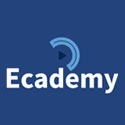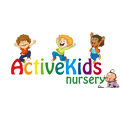A Review of the TOEFL Exam
Completing a 120-hour TEFL course at the TEFL Academy will provide you with an excellent foundation for teaching the Reading, Listening, Speaking and Writing sections of the Test of English as a Foreign Language (TOEFL). The TOEFL test is a standardized test that measures the English level of non-native English speakers and is required for admission into universities and colleges in over 130 countries. Since international students are aware that acceptance into English-speaking undergraduate, graduate and postgraduate programs is heavily weighted on their TOEFL score, there is a high demand for qualified English teachers who specialize in TOEFL test preparation. As you consider getting TEFL certified, you should consider spending the time to become an experienced TOEFL tutor as well.
This article provides a robust overview of the TOEFL, although a more concise overview is available on www.toefltutors.com
The TOEFL Internet-based Test (iBT) has become the predominant test format and is widely available at TOEFL iBT test centers around the world. The four-hour TOEFL iBT test is administered via the Internet and provides an accurate assessment of an individual’s capacity to effectively use English in an academic setting.
The Reading section consists of passages from university-level textbooks in a variety of subjects and tests an individual’s ability to find information, comprehend major points and make inferences. There are a total of three to four passages which are categorized as either exposition, argumentation or historical. Although background knowledge of the subjects in these texts is not required to determine the correct answer, it is critical for individuals to have a high-level of reading comprehension. TOEFL teachers should encourage students to read texts from a variety of subjects and make outlines that differentiate between the major and minor ideas in each passage. In order to build vocabulary, teachers should teach students strategies for guessing the meaning of unfamiliar words based on context and highlight commonly used vocabulary mentioned in texts.
The Listening section is comprised of three to five-minute conversations and lectures that would typically be heard on a university campus. Lecture topics focus on the arts, life science, physical science and social science, while the listening questions test basic comprehension, pragmatic understanding and aptitude to connect information. Summarizing skills will greatly benefit students who struggle on the Listening, Writing and Speaking sections. Teachers should encourage their students to think more deeply about the listening material by discussing the relationship between major concepts and the organizational structures in various lectures.
The Speaking section requires students to discuss a number of topics and their responses that are judged based on delivery, language usage and topic development. Teachers should provide students with ample class time to practice a variety of Independent and Integrated Speaking tasks and offer feedback based on the Speaking Scoring Rubric.
The Writing section consists of the Integrated Writing task and the Independent Writing task. In the Integrated Writing task, students read an academic passage and listen to a lecture on the same topic. They are then asked to summarize the lecture’s main ideas and explain how they compare or contrast to specific ideas from the reading passage. For the Independent Writing task, students are allotted 30 minutes to write about their opinion on a certain issue. Essays are scored based on idea development, organization and language usage while teachers should utilize the scoring rubrics to provide guidance and constructive feedback.
In order to become a professional TOEFL teacher, you must gain a very thorough understanding of the exam by studying test preparation materials and taking several practice tests. It is imperative that you register and take the official TOEFL iBT test at a test center in order to gain hands-on experience taking the test. In this way, you can develop more strategies from a test-taker’s perspective and build confidence with prospective students. Although teaching the TOEFL test can be quite challenging, it is rewarding to witness the positive impact that you can have on a student’s academic prospects when you assist them in achieving high TOEFL scores.
About the Author
Sarah Margaret Lee is a part-time blog writer for MyGuru, a boutique provider of 1-1 tutoring and test prep services.
- From Classroom to Clubhouse: My Journey Teaching English at a Portuguese Golf Club - August 25, 2024
- The Impacts of Teaching in Africa - December 5, 2022
- Job Searching In The Digital Age: A Guide - September 3, 2022
- Why Golf is one of the Best Ways to Learn English - June 15, 2022
- How to travel smart with medical conditions - April 24, 2022
- 5 Ways TEFL Teachers can Develop New Skills - December 14, 2021
- How to Calculate the Cost of a Postgraduate Degree - April 11, 2021
- Building a career as a TEFL teacher - December 29, 2016
- Learning English through Art - August 31, 2016
- Does Art Have A Place In The Language Learning Classroom? - August 31, 2016
















